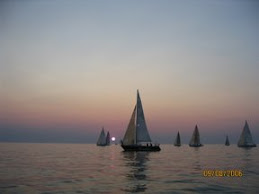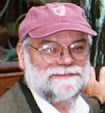Forgive me for not posting blog entries lately. I apparently have a fierce and inexplicable case of writer's block. But I did want to write a brief post today on Martin Luther King, Jr. A few years ago I wrote a piece in this blog on what I was doing the day MLK was murdered. What was left out of that posting was the impact of MLK on me--and on the world.
I was just becoming awake to the world when Martin Luther King, Jr. was murdered on April 4, 1968. I was a 19-year-old college sophomore studying for the year in Salzburg and Innsbruck, Austria. That year in Europe put America in a different light for me. Europeans were very aware and concerned about the poverty and racism in America. And they seemed very worried about and opposed to the Vietnam War. I should have cared more about these issues, but I guess I was still somewhat insulated from them. I grew up in Euclid, Ohio. During my high school years, Euclid had a population of some 70,000 people, none of whom, as far as I knew, were Black. The Vietnam war had affected Euclid, but even that didn't penetrate my consciousness much--even though a St. William's and St. Joe's classmate, Raymond "Buddy" Chasser, had been killed in Vietnam. A year after MLK was murdered in Memphis, my own cousin, Tommy Fitzpatrick (again, of Euclid, St. William's, St. Joe's, and Euclid High School), was killed in Vietnam. So I quickly woke up, with all these deaths, riots, and war all around us.
MLK's murder left me bewildered, and eventually led to my study of nonviolence, my own fight against racism (which continues!), and my involvement in both the Civil Rights movement, the protests against the Vietnam War, and, indeed, resistance to war in general. After college, I moved to Cincinnati and roomed with Chris Cotter in the poor Over-the-Rhine neighborhood. We both studied nonviolence, learned about poverty first-hand, and met many courageous people involved in both the Civil Rights movement and the movement to nonviolently resist war and the tools of war. That's when Chris and I met Marion and Ernest Bromley, Juanita and Wally Nelson, and Maurice McCrackin--and later, Dorothy Day. And we met a lot of Peacemakers and Catholic Workers--Peggy Scherer, Greg Haas, Henry Scott, John Luginbill, Kenny Przybylski, Dan Bromley, Richard Gale, Tim Jenkins, Chuck Matthei--and so many others. In Chris Cotter's last two years at Notre Dame, he was in the Peace Studies Program, working with great teachers like Jim Douglass, Charles McCarthy, John Howard Yoder, and many others. I got to meet Jim Douglass and Charles McCarthy--and I know Emmanuel Charles McCarthy, now a Melkite-rite Catholic priest, is still a profound influence on Chris and my friend Tim Musser (and really hundreds and hundreds of other people).
Some years after leaving Cincinnati, I decided to write a biography of Rev. Maurice McCrackin, the great peace and Civil Rights activist. I soon teamed up with Judith Bechtel (now Judith Blackburn), and were able to publish a bio of Mac through Temple University Press in 1991 (a 2nd edition is still for sale on Amazon.com)--Building the Beloved Community: Maurice McCrackin's Life for Peace and Civil Rights. Daniel Berrigan, SJ, wrote a foreword to our biography.
All of that was thanks to Martin Luther King, and yes, to his death, which opened up my eyes to the evil in the world and what could be done about it.
Of course this is only part of the story and omits the influence of people I encountered in Berea, Kentucky, like Mike and Peggy Rivage-Seul, Guy and Peggy Patrick, Anne Weatherford, and many more. And the marvelous people I have met, and still work with in Painesville and Cleveland, Ohio--like Kathy Flora, Dan and Kathy Philipps, Brian Rice, and many many more. Not to mention the impact of my wife Linda and my daughters, Julia, Carolan, and Emily.
There are many courageous allies out there. Martin Luther King, Jr. once said, "The arc of the moral universe is long, but it bends toward justice." There's work to be done, there are allies out there, and "we shall not be moved" by the forces of hatred and despair.
Wednesday, April 4, 2018
Subscribe to:
Posts (Atom)

